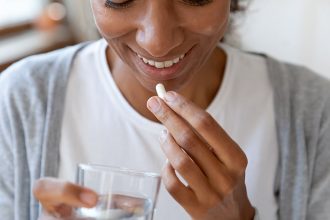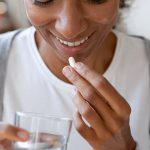Supplement companies frequently tout the benefits of peptides for enhancing muscle gain and promoting fat loss, yet scientific research on their effectiveness in bodybuilding remains limited. Some varieties of peptides are even banned in professional sports due to their potential performance-enhancing effects.
Peptides, particularly growth hormone secretagogues (GHS), have garnered significant attention among bodybuilders seeking to optimize their physique and performance. As athletes aiming to modify their body composition efficiently, bodybuilders often turn to supplements or other aids to support their training goals.
Peptides are often perceived as a more natural alternative to anabolic steroids, with proponents praising their ability to increase muscle mass, aid in fat loss, and enhance workout effectiveness. This article provides an in-depth exploration of peptides in bodybuilding, addressing their safety and efficacy to help readers make informed decisions.
What are peptides?
Peptides, including GHSs, are short chains of amino acids, which are little molecules that are the building blocks of peptides and proteins.
Peptides exist naturally in your body, but you can also find them in animal or plant sources of protein, including meat, fish, dairy, eggs, beans, lentils, and whole grains. Manufacturers can isolate these peptides or make them by combining individual amino acids .
The structure of peptides is similar to that of certain hormones or messaging compounds already present in your body. Many also have the ability to penetrate tissues.
These short chains of amino acids are involved in a variety of processes in your body, including in the production of hormones and DNA. They’re also helpful when building muscle tissue, which is what makes them particularly appealing to bodybuilders .
You can purchase peptide supplements as a powder that you can mix with a liquid and consume orally. Alternatively, you can find them in injectable form.
SUMMARY
Peptides are short chains of amino acids that occur naturally in foods and your body. Manufacturers can isolate them from natural sources or make them artificially. You can take these supplements orally or inject them directly into your body.
What do peptides do in your body?
Because peptides’ structure can be similar to those of some hormones and messaging compounds in the body, they can engage with and activate several receptors throughout the body, thereby influencing a variety of bodily processes .
Depending on their sequence and composition, certain peptides may help prevent blood clots, boost the immune system, protect cells against damage, and reduce cholesterol, inflammation, and blood pressure .
Specific peptides may also help boost the release of hormones known to stimulate muscle growth, body fat loss, and exercise performance and recovery. This makes them particularly appealing to bodybuilders interested in maximizing their training results.
SUMMARY
Peptides can engage with and activate various receptors throughout the body. This promotes the release of hormones and other messaging compounds that may influence your health, body composition, and exercise performance and recovery.
How do peptides work for bodybuilding?
Bodybuilders are often keen on altering their body composition rapidly and effectively, and research suggests that certain peptides may assist in achieving these objectives.
One group of peptides that garners particular interest among bodybuilders is Growth Hormone Secretagogues (GHS). These peptides can stimulate the production and release of human growth hormone (HGH), a hormone secreted by the pituitary gland. HGH plays a crucial role in enhancing muscle growth and facilitating fat loss.
HGH stimulates the liver to release insulin-like growth factor-1 (IGF-1), which in turn promotes muscle protein production, muscle growth, and indirectly supports the breakdown of body fat.
In the 1980s, HGH gained popularity as a performance-enhancing drug among athletes, including bodybuilders. However, due to safety concerns, regulatory bodies like the International Olympic Committee banned its off-label use from 1989 onward.
GHSs are believed to offer similar benefits to HGH but with fewer side effects, hence their popularity as an alternative among bodybuilders. Research indicates that GHSs can increase the release of HGH or IGF-1 in humans. However, few studies have investigated whether taking GHSs leads to significant changes in body composition, exercise performance, or recovery.
Moreover, no studies have examined the effects of GHSs on well-trained individuals. Therefore, further research is necessary to determine whether GHSs provide tangible benefits to bodybuilders. Consequently, scientists currently lack information on which muscle groups peptides may affect most or which workouts they may be best suited for.
SUMMARY
Taking a group of peptides called growth hormone secretagogues (GHS) has become popular in the bodybuilding community as an alternative to taking human growth hormone (HGH). However, no studies have shown GHSs are effective for bodybuilding.
Peptide types for bodybuilding
Bodybuilders often show a keen interest in peptides called growth hormone secretagogues (GHS). The most commonly used GHSs for bodybuilding purposes include:
- Growth-hormone releasing hormones: Examples include sermorelin, tesamorelin, CJC-1293, and CJC-1295.
- Ghrelin and compounds mimicking its actions: Examples include lenomorelin, anamorelin, ipamorelin, macimorelin, and tabimorelin.
- Growth hormone-releasing peptides (GHRPs): Examples include alexamorelin, GHRP-1, GHRP-2, GHRP-3, GHRP-4, GHRP-5, GHRP-6, and hexarelin.
Although each of these peptides stimulates the production and release of HGH, they may do so in slightly different ways. Manufacturers often market each category for various purposes.
However, it’s crucial to note that no studies have investigated the effects of GHSs in bodybuilders or other well-trained individuals to date. Therefore, indications and recommended dosages are typically based on anecdotal evidence rather than scientific research.
SUMMARY
GHS peptides can stimulate the release of HGH, in turn, possibly promoting muscle growth and body fat loss. Despite the current popularity of peptides among bodybuilders, scientists need to do more research to determine whether they work.
Safety
Based on current literature, the safety of using growth hormone secretagogues (GHSs) in both the short and long term remains unknown. Studies examining their safety have been limited in size and duration, indicating a need for further research into the safety of GHSs.
Common side effects associated with GHS use may include increased appetite, elevated blood sugar levels, and fluid retention. Additionally, GHSs may reduce the body’s sensitivity to insulin, potentially leading to difficulties in maintaining normal blood sugar levels.
There is also a risk of contamination if non-sterile needles are used for GHS injections. While the Food and Drug Administration (FDA) has approved a few types of GHSs for specific medical conditions under prescription-only use, GHSs are included in the World Anti-Doping Agency’s list of prohibited substances.
Despite regulatory measures, many GHSs are available for purchase from supplement-selling websites without a prescription. However, this poses risks due to the unclear long-term safety and the difficulty in assessing the quality of purchased supplements. Therefore, any off-label or nonprescription use of GHSs is considered unsafe.
SUMMARY
GHS peptides may increase appetite and blood sugar levels or cause fluid retention. Their long-term safety is uncertain, and off-label use may not be safe.










